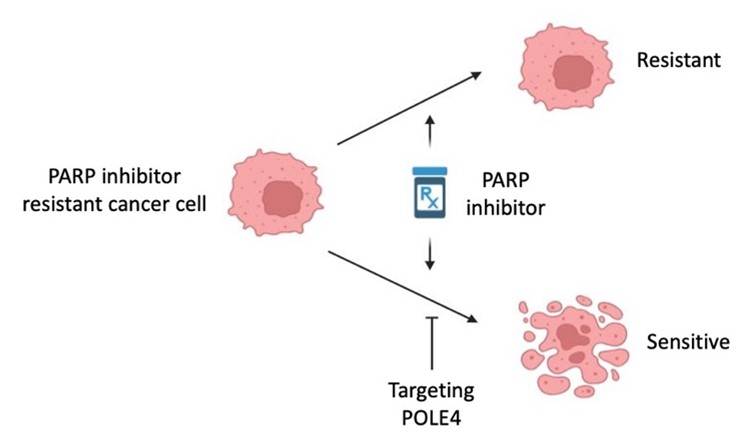Jun 14, 2024 | News
The ultimate goal of cancer therapy is to eliminate malignant cells with minimal side effects. Modern approaches increasingly focus on targeting specific molecular pathways critical for tumor survival and proliferation, rather than relying on traditional cytotoxic agents that kill cells indiscriminately. A promising strategy is synthetic lethality, where the combination of two non-lethal mutations results in cell death. This approach has led to significant advancements in cancer therapy, including the discovery of synthetic lethal interactions between mutated Breast Cancer Susceptibility genes (BRCA1 and BRCA2) and PARP inhibitors, which selectively target cancer cells with these genetic deficiencies.
Since their introduction in clinical practice, PARP inhibitors have significantly improved treatment outcomes for patients with BRCA-deficient breast, ovarian, prostate, and pancreatic cancers. However, cases of acquired resistance to PARP inhibitors have emerged, prompting scientific efforts to identify genetic alterations that could enhance PARP inhibitor sensitivity and overcome resistance.
In a recent study published in Nucleic Acids Research, Gyula Timinszky and his research team at the HUN-REN Biological Research Centre identified novel genetic alterations that increase sensitivity to PARP inhibitors. They demonstrated that the loss of accessory subunits of DNA polymerase epsilon, specifically POLE3 and POLE4, sensitizes cells to PARP inhibitors. Notably, this sensitivity mechanism differs from the conventional one involving BRCA protein loss, uncovering a new potential strategy for enhancing PARP inhibitor efficacy and overcoming acquired resistance.
Building on these findings, the team is now focusing on developing POLE4 inhibitors that could further enhance the effectiveness of PARP inhibitor therapy, offering new hope for patients with resistant cancers.

Targeting POLE4 sensitizes cancer cells to PARP inhibitor treatment.
The illustration was created with BioRender.com.